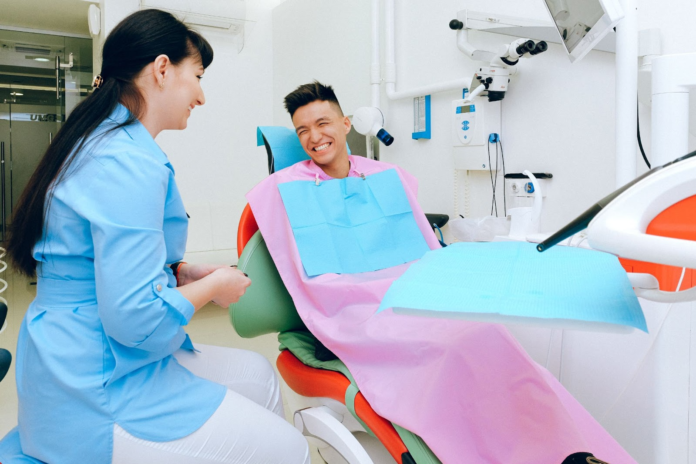It’s normal to feel some level of unease before a dentist’s appointment. However, if patients experience considerable fear and anxiety, their dental health may suffer in the long term. They might avoid the dentist until their issues become severe, leading to complications and costly procedures, which will further feed their dental anxiety.
Dealing with anxious patients isn’t a pleasant experience for dentists, either. Alleviating their worries is therefore important for both parties involved. There are many strategies dentists can use to make sure patients will have a positive experience when visiting their offices. Here are a few that are not only effective but also easy to implement.
Identifying dental anxiety
The first step towards effectively treating patients with dental anxiety is identifying when the issue is present. While some patients may voice their concerns during their visits, others might not. Therefore, consider assessing patients using a simple questionnaire they can fill out when making an appointment or during their first visit. The Modified Dental Anxiety Scale was designed for this purpose and is widely used across the world. Keeping a record of the results will help you make the right accommodations for anxious patients in the future.
Mind the schedule
Patients with dental anxiety tend to overthink what might await them during their appointment. Therefore, an appointment late in the afternoon can be stressful for them, as they’ll spend the whole day worrying. If possible, try scheduling anxious patients in the morning hours. In addition, stay on top of your schedule, so that they don’t spend a long time in the waiting room, making up worst-case scenarios.
Prepare a pleasant environment
The sounds and smells associated with a dentist’s office can be triggering for patients with dental anxiety. Creating a pleasant environment that will relax patients subconsciously will contribute to their positive impression of your dental office. Consider masking unpleasant scents with relaxing ones. Make sure to use soft, warm lights wherever possible, and play music to improve the ambiance. Adding greenery to the space also makes a huge difference, as the presence of plants is scientifically proven to have a calming effect on our minds.
Communicate openly
Speaking about their anxiety might make patients feel better instantly. Talking to them openly and expressing understanding of their fear will foster positive emotions to combat the negative ones. In addition, for some patients with dental anxiety, knowing in advance what the procedure they are about to undergo will involve can be reassuring. Explain the steps of the procedure to the patient before getting started.
Let patients be in control
Allowing anxious patients to be in control of their own appointment can empower them considerably. Instead of starting the procedure right away, let the patient tell you when they are ready. Tell them that it’s okay to take a break at any time they need to. They should simply signal with their hands when they feel pain or need a moment for any reason.
Foster trust through professionalism
Your professionalism will play a major role in how relaxed your patient feels in your office. Showcasing utmost professionalism at every moment will tell them they are in good hands. How you speak when you explain to patients their diagnosis is key. Always be confident and avoid negative language. Additionally, visual cues are as important as your expertise. Ensure you’re following all the guidelines regarding the sterilization of your dental handpieces and that sterilization equipment is clearly visible. Make sure the premises, as well as all of the staff’s uniforms, are clean and orderly.
Provide distractions
A healthy amount of distraction will take patients’ minds off their anxiety. Make sure you equip your office with a radio or TV that patients can listen to or watch while receiving their treatment. The background entertainment will create a more relaxed atmosphere and help the time pass more quickly. It will also drown out some of the unpleasant sounds of the dental equipment.
Dental anxiety can be a serious obstacle for children and adults alike. Going the extra mile to make anxious patients feel more comfortable will benefit both them and you. The aforementioned strategies will not only ease patients’ anxiety but also help them develop a positive attitude toward their future dentist visits.


























